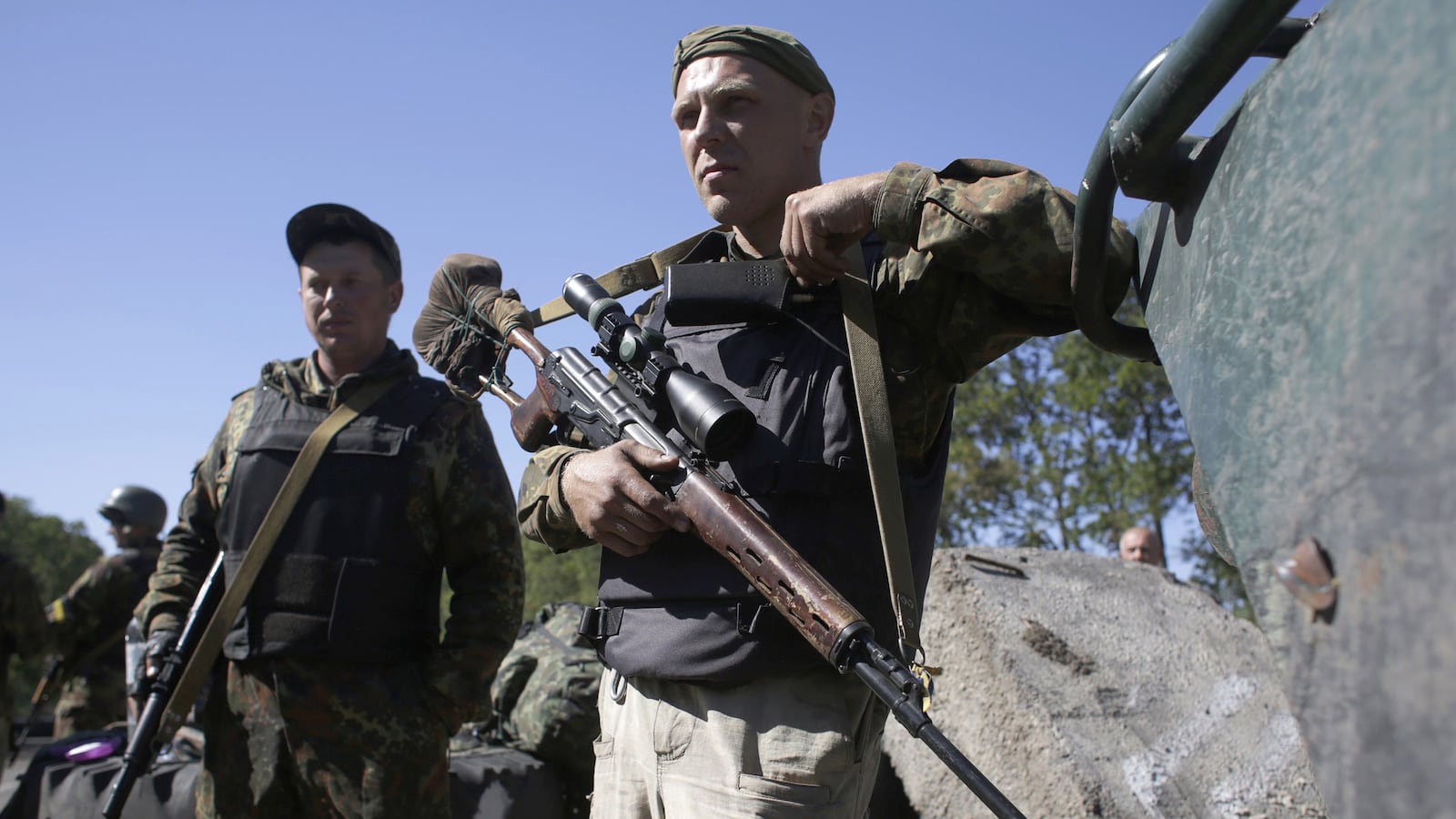MOSCOW, Russia — On Friday Ukrainian President Petro Poroshenko accepted President Vladimir Putin's peace plan for Ukraine. They promised to decentralize power in eastern regions of the country controlled by rebels and what Ukraine and Western officials say are Russian military forces.
The Ukrainian authorities, rebel militant leaders and a representative of the Organization for Security and Cooperation in Europe (OSCE) signed a 14-point peace deal in Minsk, Belarus, that provided for a ceasefire. Although Russian troops have played a large and growing role in the fight, and much of it was stage-managed by Putin, Moscow is not a signatory to the agreement.
After four months of intensifying combat, the Ukrainian authorities, represented by former president Leonid Kuchma, agreed to stop fighting against forces that just yesterday they called “terrorists.”
To relieve the population from constant shelling and reduce the risk of attack on the besieged port city of Mariupol, the guns fell silent at just about the time the ceasefire went into effect, at 3:00 p.m. GMT.
President Poroshenko said he took into account President Putin’s call for a ceasefire addressed to the leaders of illegal armed groups in Donbass. In the course of a phone conversation earlier this week, the two presidents agreed it was time to stop the bloodshed in the conflict that had already killed 2,600 civilians and hundreds of militants on both sides. "The highest value is human life. We must do everything possible and impossible to end bloodshed and put an end to people's suffering," Poroshenko said on Friday.
The artillery fire in Ukraine stopped, but there were still many questions left unanswered. What would happen to hundreds of prisoners kept in the basements of separatist prison complexes? The peace agreement signed on Friday stipulated “all for all exchange” but human rights defenders were not convinced that all detainees would be freed. Alexander Cherkasov, at Memorial human rights center, told The Daily Beast on Friday, “We have concerns about the lives of prisoners, since no international organizations have access to the basements and jails controlled by rebels in the Luhansk and Donetsk regions.” Another question concerns thousands of refugees, said Cherkasov: “It is also unclear if the returning population would suffer mass human rights violations.”
But the key question observers asked was for how long the peace between Russia-backed warlords and Ukrainian authorities could last. In the past few days, separatist forces in the so-called Army of Novorossiya were winning battle after battle, claiming their plans were to advance all way to Crimea and then further along the shore of the Black Sea towards the border with Moldova.
As soon as the contact group signed the peace deal in Minsk, a senior rebel official, Pavel Gubarev, published a set of demands to Kiev that included demands that for all Ukrainian regions to become independent. “Petro Poroshenko proposes a utopian solution to the problem.”
Rebel militants know they have after the Ukrainian army lost scores of servicemen in battles over the last two weeks. But the breakaway “republics” of Donetsk and Luhansk will still have to respect Putin’s decision to have a ceasefire. “Clearly the rebels are not happy about the ceasefire,” the head of the Center for Political and Conflict Studies in Kiev, Mikhail Pogrebinsky, said on Friday. “They were close to occupying Mariupol, but they depend on Putin, who demonstrated his political will to stop the war.”
Peace is what people in Ukraine, Russia and Europe have been hoping for, but with both NATO and Russia getting more involved in the fight, the threat of a broader European war seemed to hang like a dark thunderhead over eastern Europe. The West accused Russia of sending troops and more than 400 tanks and artillery pieces into Ukraine. It offered to refrain from new sanctions only if the Kremlin controlled the rebels.
Now, just in case Moscow changes its mind and chooses conflict, NATO has announced the formation of a multi-national “spearhead” force ready to be deployed to conflict areas in eastern European member states within 48 hours.
The clock for confrontation may have slowed, but it’s too early to say it’s stopped ticking.






